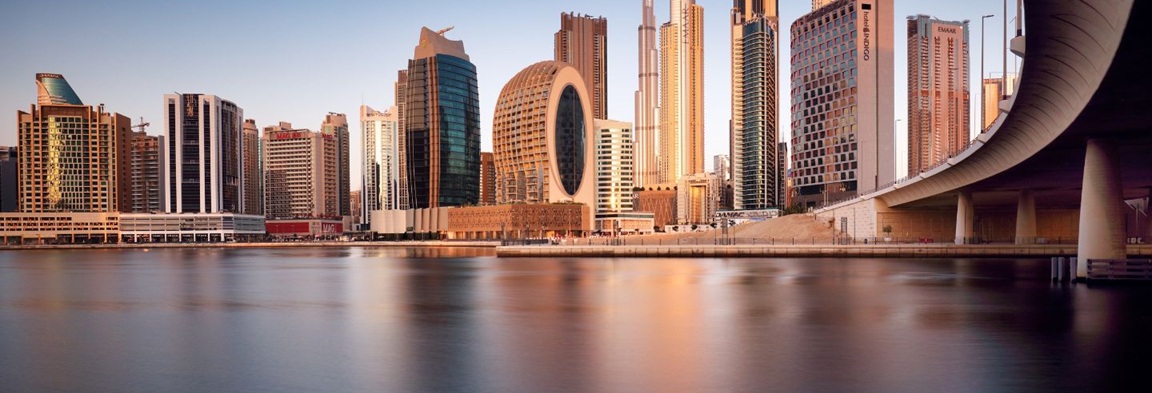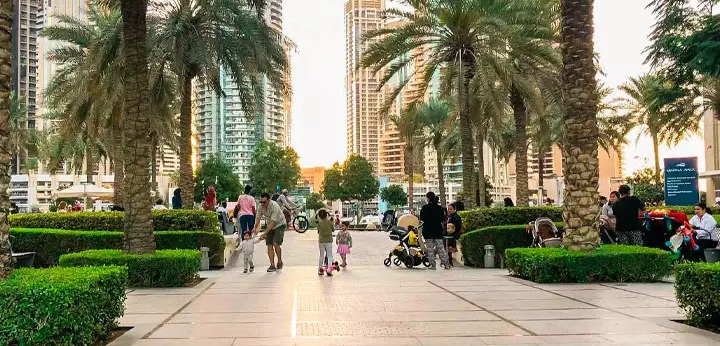Dubai Property Buying Guide: Everything You Need to Know
Sunday, 27 April 2025
Dubai’s dynamic real estate market offers incredible opportunities for investors and homebuyers alike. Whether you’re a seasoned investor or purchasing your first home, understanding the rules and processes involved is essential. This detailed guide will walk you through everything you need to know about buying property in Dubai, helping you make informed decisions and navigate the journey with confidence.
Understanding the Legal Framework: Key Rules for Buying Property in Dubai
Before diving into the property buying process, it’s important to familiarize yourself with the legal guidelines that govern real estate transactions in Dubai.
Let me know if you’d like it more formal, casual, or simplified!
Table of Contents
- Freehold vs. Leasehold Ownership in Dubai
- Laws for Buying Property in Dubai – How to Invest in Dubai Real Estate
- Legal Steps to Buying a Property in Dubai
- Considerations for Successful Property Purchases in the Dubai Real Estate Market
- Frequently asked questions
Freehold vs. Leasehold Ownership in Dubai
Dubai’s property laws are investor-friendly, offering both UAE nationals and foreign buyers the opportunity to own real estate in designated areas.
Freehold ownership gives buyers complete and permanent rights over the property and the land it stands on, whereas leasehold ownership grants the right to occupy or use the property for a fixed term—usually up to 99 years.
Understanding the distinction between these two ownership types is crucial when deciding on the best investment—whether you’re considering a villa or apartment for sale in Dubai—ensuring your choice supports your long-term goals.
Laws for Buying Property in Dubai – How to Invest in Dubai Real Estate

If you’re looking to invest in the Dubai real estate market, it’s essential to understand the legal framework that governs property ownership. The key regulation is Law No. 7 of 2006, which outlines who can own property and where.
Who Can Buy Property in Dubai?
According to Article (4) of Law No. 7 of 2006, the following individuals can purchase real estate anywhere in Dubai:
- UAE citizens
- GCC (Gulf Cooperation Council) nationals
What About Expats and Foreign Investors?
Wondering how to buy property in Dubai as an expat? Here’s what the law says:
- Non-residents and foreign nationals can buy property only in designated areas specified for foreign ownership.
- These zones are known as freehold areas, offering complete ownership rights to foreigners.
This rule is governed by Article 3 of Regulation No. 3 of 2006, which restricts freehold ownership to specific developments and communities.
Choosing Between Freehold and Leasehold Ownership
When investing in Dubai property, it’s important to weigh your options based on your financial goals and preferences:
- Freehold Ownership:
- Full and permanent ownership of both the property and the land
- Greater flexibility and potential for long-term capital appreciation
- Ideal for investors seeking control and long-term benefits
- Leasehold Ownership:
- Ownership for a fixed term (usually up to 99 years)
- May come with lower upfront costs
- Can offer attractive rental yields
Legal Steps to Buying a Property in Dubai

Thinking of buying property in Dubai—whether it’s your dream home or a smart investment? The process is fairly simple if you follow the right legal steps and get the right support along the way.
Before diving into the paperwork, it’s essential to begin with a well-planned property search. Start by determining your budget and outlining your key requirements. Consider important factors like the type of property, ideal size, preferred location, and proximity to key amenities such as schools, hospitals, restaurants, and public transport.
- Help you navigate Dubai’s property ownership laws
- Connect you with suitable and verified listings
- Negotiate the best price on your behalf
- Handle the legal and administrative procedures from start to finish
1. Drafting the Sale Agreement Between Buyer and Seller
After identifying your ideal property in Dubai—whether through Bayut or another trusted source—the first official step in the buying process is to formulate a contract between the buyer and the seller. This agreement outlines the essential terms and conditions of the sale and sets the foundation for a smooth transaction.
Key steps involved in this stage:
- Initiate Negotiations: Begin discussions with the seller to finalize major terms.
- Agree on the Price: Settle on a mutually accepted selling price for the property.
- Define Payment Terms: Clarify the payment structure—whether it’s a lump sum or installment-based.
- Include Special Conditions: Add any specific clauses or contingencies related to the sale (e.g., furnishing, handover date, penalties for delays).
- Prepare the Memorandum of Understanding (MOU): Often referred to as Form F, this document is legally binding and registered with the Dubai Land Department (DLD) once signed by both parties.
Cash or Mortgage: Choosing the Right Payment Method
When buying property in Dubai, you can either pay in cash or apply for a mortgage. Cash buyers often have stronger negotiating power and can secure a lower price, as they have a clear budget. On the other hand, those opting for a mortgage need bank approval, but it allows for flexible financing. Regardless of the payment method, it’s essential to draft a clear contract to ensure all terms are agreed upon to avoid future disputes.
2. Signing the Agreement of Sale

Once you’ve agreed on the terms, the next step is to sign the Dubai Real Estate Sale Agreement, commonly known as the Memorandum of Understanding (MOU) or Form F. Here’s what you need to know:
- Download Form F: This agreement can be downloaded from the Dubai Land Department (DLD) website. It outlines key details such as the purchase price, payment schedule, and other important terms.
- Sign in Presence of a Witness: Both the buyer and seller must sign the agreement in the presence of a witness, usually at the Registration Trustee’s office.
- Security Deposit: A 10% security deposit of the property price is required at this stage. This amount will be refunded once the transaction is completed.
3. Application for a No Objection Certificate (NOC)
After signing the sale agreement, the next step is to apply for a No Objection Certificate (NOC). Here’s what you need to know:
- Meeting with Developer: The buyer, seller, and real estate agent must meet at the developer’s office (e.g., Dubai Properties, Emaar Properties, or any other property developer in Dubai).
- Purpose of the NOC: The main objective of this meeting is to apply for the NOC, which confirms that the property has no outstanding service charges or other obligations. This certificate is crucial for transferring the property ownership.
- Payment for NOC: A fee will be required to process the NOC application, which can vary depending on the developer.
- Important Documents: Both Form F and the NOC are essential documents for the property transaction and must be provided to complete the process.
4. Initiating Ownership Transfer with DLD
After obtaining the No Objection Certificate (NOC), the final step in the property buying process is transferring ownership at the Dubai Land Department (DLD). Here’s what you need to know:
- Visit the DLD Office: With all necessary documents in hand, head to the DLD office to complete the ownership transfer process.
- Documents Required for Transfer:
- Manager’s cheque for the property price, payable to the seller
- Original identification documents of both the buyer and the seller (Emirates ID, passport)
- Original NOC issued by the developer
- Signed Contract F (MOU)
- Verification and Payment: The DLD will verify all submitted documents and the applicable fees will be paid to complete the transfer.
- Title Deed: Once everything is verified and the payment is processed, you will receive the new title deed in your name, officially making you the new owner of the property.
Considerations for Successful Property Purchases in the Dubai Real Estate Market
When navigating the Dubai real estate market, it’s essential to keep several key factors in mind to ensure a smooth and successful property purchase. Here are the key considerations:
- Work with Registered Real Estate Agents: It’s crucial to work with agents who are officially registered with the Real Estate Regulatory Agency (RERA). This ensures that you are working with a professional who adheres to Dubai’s property laws and regulations.
- Translations and Attestations: If any documents are written in a foreign language, they must be attested and submitted with certified translations into Arabic. This is necessary for the validity of the documents during the legal process.
- Registration Timeline: The transaction must be officially registered with the Dubai Land Department (DLD) within 60 days of signing the agreement. Both the buyer and seller are responsible for adhering to this timeline to avoid penalties.
- Freehold Districts for Foreigners: Foreigners can only purchase properties in specific freehold districts in Dubai. Some of the most popular areas for foreign ownership include:
- Arabian Ranches
- Palm Jumeirah
- Dubai Marina
- Downtown Dubai
These considerations will help you make informed decisions and ensure a smooth property acquisition experience in Dubai.
Frequently Asked Questions (FAQs)
Can I buy property in Dubai if I am a foreigner?
Yes, non-residents and foreign nationals can purchase property in designated freehold areas of Dubai, which allow full ownership rights. These areas include popular developments like Palm Jumeirah, Dubai Marina, and Downtown Dubai.
What is the difference between freehold and leasehold property ownership?
Freehold ownership gives buyers complete and permanent rights to both the property and the land it stands on, while leasehold ownership allows buyers to hold the property for a fixed term (usually up to 99 years), offering lower upfront costs but with limited long-term ownership.
What documents are required to transfer property ownership in Dubai?
To transfer ownership, you will need a manager’s cheque for the property price, original identification documents (Emirates ID, passport) for both buyer and seller, No Objection Certificate (NOC) from the developer, and the signed Contract F (MOU).
How long do I have to complete the property registration process?
The property transaction must be officially registered with the Dubai Land Department (DLD) within 60 days of signing the sale agreement to avoid any penalties.
Do I need a real estate agent to buy property in Dubai?
While not mandatory, it is highly recommended to work with a RERA-registered real estate agent who can guide you through the legal process, help negotiate the best price, and ensure compliance with Dubai property laws.





